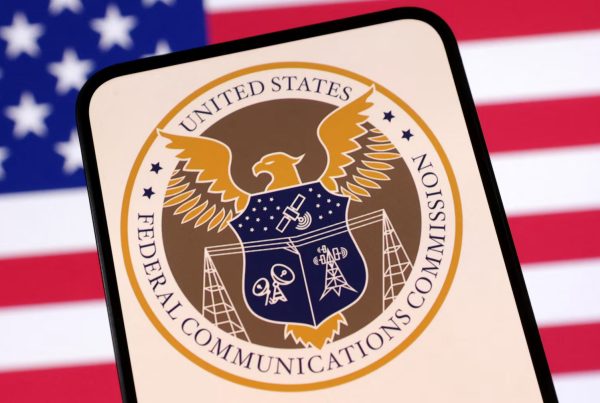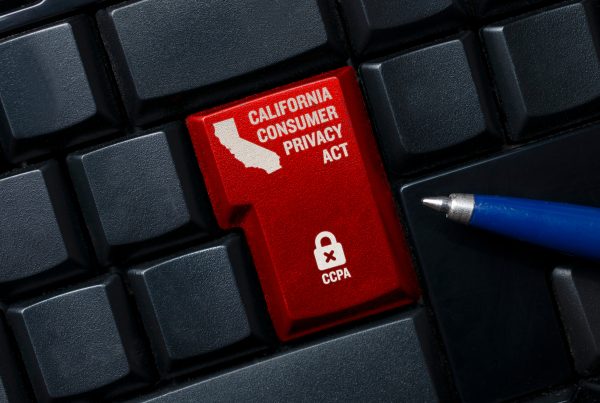DO NOT DISTURB ACT SECTION-BY-SECTION SUMMARY
Section 1. Short Title; Table of Contents.
The title of the Act will be the “Do Not Disturb Act.”
TITLE I – FEDERAL COMMUNICATIONS COMMISSION
Section 101. Robocall Restrictions.
This section replaces the current definition of “automatic telephone dialing system” in the Telephone Consumer Protection Act (TCPA) with a new term, “robocall,” and makes conforming edits throughout to incorporate this definition.
“Robocall” is defined to include calls made and text messages sent (1) using equipment that makes calls or sends text messages to stored telephone numbers or telephone numbers generated by a random or sequential number generator, or (2) using an artificial or prerecorded voice or an artificially generated message, with limitations for calls and text messages sent using equipment that requires substantial human intervention.
Section 102. Text Message Authentication and Traceback Study.
This section directs the Federal Communications Commission (FCC) to conduct a study on the feasibility of creating a framework for authentication and tracing back the origin of text messages for enforcement of robotext violations.
The FCC must, within 18 months, submit a report to Congress on the findings of the study.
Section 103. Annual Robocall Report.
This section amends the Pallone-Thune TRACED Act to require registration of the Consortium of Private-Led Efforts to Trace Back the Origin of Suspected Unlawful Robocalls every three years. Previously, registration was required annually.
This section clarifies that the scope of the consortium should be limited to tracing back the origin of phone calls.
Section 104. Disclosure Required for Robocalls using AI.
This section requires a person using artificial intelligence (AI) to emulate a human being in a robocall to disclose that fact at the beginning of a robocall.
Section 105. Enhanced Penalties for Violations Involving AI Voice or Text Message Impersonation.
This section doubles the maximum forfeiture penalty or criminal fine for violations of the TCPA where artificial intelligence is used to impersonate an individual or entity with the intent to defraud, cause harm, or wrongfully obtain anything of value.
Section 106. Certain Requirements for VOIP Service Providers.
This section directs the FCC to promulgate regulations that require certain actions of and impose certain liabilities on Voice over Internet Protocol (VoIP) providers.
2
Under these rules, VoIP providers must verify the identity of each customer and proactively monitor and analyze traffic to determine if robocalls are being made. If a VoIP provider finds through this analysis that a customer is engaging in the pattern or practice of making robocalls, the provider must conduct an investigation to determine if a violation is being committed. If the provider finds evidence of violations, they must take affirmative and effective measures to mitigate the origination and transmission of these robocalls and submit a public report of the investigation and evidence to the FCC’s Robocall Mitigation Database.
Additionally, the regulations would impose liability on individual company owners, directors, officers, and principals of a VoIP provider if they fail to comply with the regulations or knew or should have known that the service was being used to facilitate illegal robocalls.
The regulations must also establish a process to temporarily suspend providers of covered VoIP services from the Robocall Mitigation Database and have traffic blocked by downstream and intermediate providers if they fail to respond to notice by the FCC of suspected illegal traffic while a final determination of whether to remove the provider from the database is pending.
Section 107. Tracking of Top 100 Illegal Robocall Campaigns.
This section requires the FCC to develop a framework and tracking system to monitor the top 100 illegal or suspected to be illegal robocall campaigns. The FCC must make available to the public on their website a report of the identified campaigns on a monthly basis.
Section 108. Offering Robocall-Blocking Service at No Charge to Customer.
This section directs the FCC to promulgate rules to require providers of voice service to offer robocall-blocking service to each customer at no additional charge. This service must give customers the ability to block robocalls that are highly likely to be illegal.
Section 109. Telephone Solicitations.
This section amends the definition of telephone solicitations under the TCPA to include calls or text messages transmitted for the purpose of deception, fraud or wrongfully containing anything of value or to encourage the purchase of property, goods, or services.
Section 110. Commission Defined
This section defines the term “Commission” to mean the Federal Communications Commission for all sections of Title I.
TITLE II – FEDERAL TRADE COMMISSION
Section 201. Addition of Text Message to the Definition of Telemarketing.
This section extends the authority of the Federal Trade Commission (FTC) under the Telemarketing and Consumer Fraud and Abuse Prevention Act to include text messages.
Section 202. Adoption of Regulations on Inbound Telephone Calls and Expanded Calling Time Restrictions.
3
This section requires the FTC to revise the Telemarketing Sales Rule (TSR) to prohibit deceptive or abusive telemarketing acts or practices related to inbound telephone calls.
It also directs the FTC to extend Do Not Call hours to anytime outside of 9 am to 5 pm local time for the location of the person the call is being made to.
Section 203. Disclosure Required for Telemarketing using AI.
This section directs the FTC to amend the TSR to require a person using artificial intelligence to emulate a human being in a covered telemarketing call or text message to disclose that fact at the beginning of the call or text message.
Section 204. Enhanced Penalties for Violations of Telemarketing Rules Involving AI Voice of Text Message Impersonation.
This section doubles the maximum forfeiture penalty or criminal fine for violations under subsection (l) or (m) or section (5) of the FTC Act where a party violates the Telemarketing Sales Rules and the party making the call or sending the text message uses artificial intelligence to impersonate an individual or entity with the intent to defraud, cause harm, or wrongfully obtain anything of value.
Section 205. Commission Defined.
This section defines the term “Commission” to mean the Federal Trade Commission for all sections of Title II.





